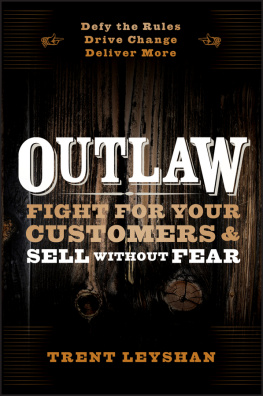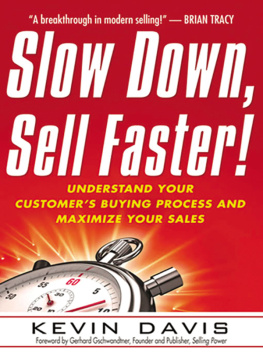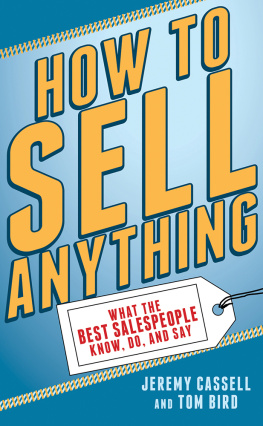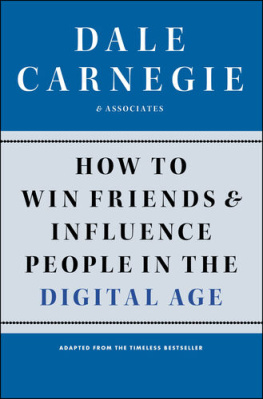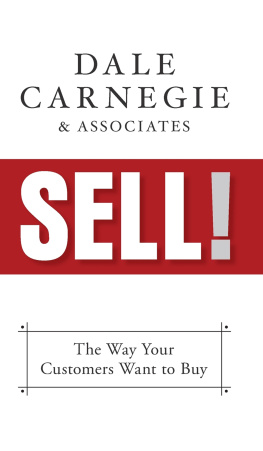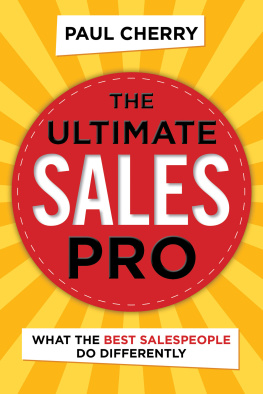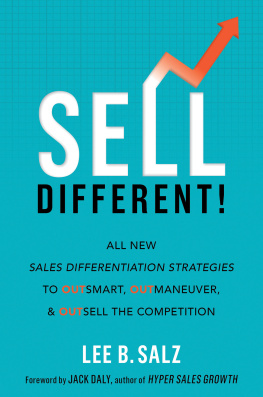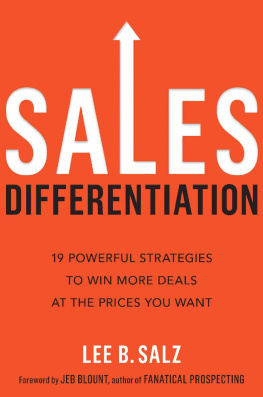About the author

Trent Leyshan is the founder and CEO of international sales training and development company BOOM! As the lead consultant and facilitator, he partners with some of the worlds most dynamic sales and service-driven companies. Clients include the National Australia Bank, Symbion Health, American Banknote, CSR and Crown Casino, to name a few.
Trent combines his unique experiences in business, rigorous research and new insights with fresh, interactive delivery methods that inspire action and lasting change in behaviour. He works with hundreds of salespeople across a broad range of industries every year. He designs and delivers sales seminars and in-house training programs across Australia, New Zealand and Asia.
Early in his career, Trent was the head spruiker and national sales manager at Big Kevs. Under the guidance of mentor Kevin McQuay (Big Kev), Australias most flamboyant TV sales personality, he learned and developed his sales and presentation skills.
He has since led sales teams in award-winning advertising and online marketing agencies. He has transformed two companies from lounge-room operations into industry leaders. He is the author of The Naked Salesman (www.thenakedsalesman.com), and a sought-after speaker and contributor to various media on sales strategy and sales leadership.
For more information visit www.boomsales.com.au
Or connect with Trent here:
Facebook: www.facebook.com/trentleyshan
Twitter: @trentleyshan
LinkedIn: www.linkedin.com/in/trentleyshan
Introduction
The winds of change are howling more violently than ever. World money-making markets resemble the Wild West, with ethics being cast aside in the name of self-preservation and personal gain. The dotcom bubble at the turn of last century, and more recently the global financial crises and European debt crisis, provide a damning case in point. Our commercial world is now interconnected, forever changing, making it more volatile and unpredictable. Today, sales professionals are faced with novel and obscure demands on their skills, resources and time. Marketing is now considered a jargon term used by old-schoolers, as social media sweeps us all off our feet. Genuine customer loyalty appears to be a token gesture from a distant past, as amplified competition across industries ensures the customers bottom line is now constantly top-of-mind.
The internet has spectacularly changed the way we all conduct business. Customers can now find whatever they need with speed and precision. So much information and choice is readily available, and its only a click away. As our business world spins faster and faster, we are all showered with the debris of outdated beliefs and redundant modes of operating. Most of us are left dizzy and out of breath. For others, the incessant battle with rejection leaves them downright nauseated. The business landscape is now a cold and confusing place, with the dazed players not knowing how to act, which way to go, or what approach to trust.
Who can predict what will happen three months from now, let alone in three years? Slash costs and discount! is bellowed from the lofty heights of senior management, or How about we try this social media stuff? Both approaches will end in frustration (enter the eerie strings of a sad violin), especially when you apply them from a place of desperation instead of inspiration. In these challenging times you need to do more of what works, not less. Innovate? Hell yes! Just remember the worst time to try something untested is when you most need to try something new, as the stakes are higher, the pressures intensified and the risks greater. Its time to get urgent now, before you really need to.
The sheriff is dead
The skills, strategies and behaviours required to succeed in sales many decades ago are noticeably different from those needed today. For the most part, customers were ill-informed, if not utterly ignorant, about the conniving ways of manipulative salespeople who directed their attention towards the unsophisticated. Sleazy cold-calling, ruthless closing techniques and slithering snake-oil salesmen thrived in this era. Towards the seventies and into the eighties competition had intensified and markets had begun to expand exponentially as mass media took hold. Sales professionals needed to evolve and invent new tactics to win customers. They soon realised that to be successful they had to embellish their relationships. Customers loved this treatment, and so they were easily seduced. Long lunches, promotions, discounts and free holidays were met with delight. Added to this, customers got a new sense of how they wanted to be treated, even though they were ultimately paying for it.
Just before the turn of this century kaboom! The technology revolution and information age exploded into our lives. The internet propelled a distinct shift in consumer behaviour. Customers began to emerge from the dark ages. Buyers began to educate themselves, as a myriad of web and e-commerce sites sprouted up, and over time steadily began to change the way we all consume and buy things. Customers could now research and compare offers, and in many ways take back control of the buying process. They were also no longer willing to suffer fools or be treated like fools. The internet empowered and informed: the customer struck back and was no longer solely influenced by the salesperson.
We chart forward to today as the tempo of changes continues to accelerate. Business is even more complicated than it was a decade ago. True differentiation (to really stand out) is becoming increasingly challenging, if not impossible to assert. Markets such as property and real estate are stagnating on a global scale. The financial services space is morphing drastically while, sadly, industries like traditional retail that were too slow to adapt are now disintegrating.
A new force of influence is born
Despite these trying times and shifts in buyer behaviour, a specific type of sales professional is thriving. We are seeing a new force of influence emerge. These people are noticeably different from other sales professionals. They dont just sell a product or service: what they stand for, communicate and demonstrate transcends buying and selling, and influences their customers as if they were fighting for a worthy cause. They defy the rules and adopt a distinctive selling approach and apply it to forge ahead of their contemporaries. These extraordinarily influential sales leaders are called Outlaws.
Deeply passionate, and at times evangelistic, Outlaws know how to inspire and develop customer relationships, but they also recognise thats not nearly enough in the modern economy. Outlaws work by a set of insight-driven operating principles, seven to be exact, all neatly set out in this book. These principles enable sales professionals to promote outwardly instead of being self-directed. The benefits of this approach are measured by customers no longer seeing the Outlaw as a salesperson: the Outlaw becomes instead a trusted ally a person of influence they call on for critical advice to lead them through challenges and uncertainty. Think of some of the most trusted advisers you currently surround yourself with, such as doctors, mentors or accountants. None of these advisers need to sell you anything instead, they inform and empower you with critical information that enhances your situation or wellbeing.
Outlaws put their customers first. They resist the urge to be the centre of attention. When you meet an Outlaw, it becomes clear that the engagement is all about you, not them. They will probe and ask meaningful questions that drill deep into your challenges and connect with your higher goals, desires and aspirations. They dont labour to be all things to all people: they are focused on and deeply committed to their field of endeavour, and willing to burrow underground to regroup, find and develop fresh impactful strategies. They are comfortable dwelling among real people, the crowd, to get a clear sense of what their customers really need. They are always listening, forever seeking an advantage to help their customers. Never content with what is, they search for what can and ultimately should be.

